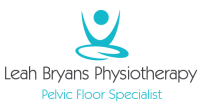
GYNAE SURGERY SUPPORT
Physiotherapists are well placed to help you prepare for and recover from gynaecological surgery.
Gynae surgery may be for repair of pelvic organ prolapse, hysterectomy for fibroids, and for many other reasons. Surgery can be performed abdominally, laparoscopically or vaginally. Recovery rates vary depending on the type of procedure and the reason for surgery.
Pelvic floor problems are generally not life-threatening but they hugely impact on your quality of life. Having incontinence or prolapse can stop you from being active socially and from participating in exercise and this is really bad for your overall health long-term!
Surgery can be a complete game changer!
To get the best from your surgery we need to:
- Be sure that you have a strong dynamic pelvic floor
- That you can empty your bowels without straining
- That you’re aware of fluid intake and how and when to drink to keep your bladder happy
- Help you get back to general exercise in a pelvic floor friendly way
In essence we would love you to know how your body works and how to get the best from your body so that the surgical procedure is just the icing on the cake. Surgery is just one piece of the puzzle and not the “Quick Fix” answer unless we know how to look after ourselves around it.
So our goal is to help you Get the best from your surgery so that you can make a full recovery and get back to doing the things you enjoy.
WHAT WE OFFER
PRE AND POST OPERATIVE CHECKS
In-person assessment of the pelvic floor muscles, this can be done in the months before surgery or 6 weeks post op. At these sessions we…
- Assess for and grade prolapse
- Grade strength and endurance of the pelvic floor muscles
- Prescribe exercise for
- The pelvic floor specifically
- Your Body as a whole
- Give Advice regarding management of any residual symptoms post op, such as
- Urinary incontinence
- Over active bladder
- Constipation
- Faecal soiling
- Painful intercourse
What we do know from years of research is that a strong and supportive dynamic pelvic floor helps women to stay continent and also prevent recurrence of prolapse symptoms post surgery.
We can teach pelvic floor exercises in many ways and some for some women verbal instruction is sufficient but most need a little help to get it right. I often use ultrasound to help women see what they are capable of, and to explain why they may experience certain symptoms.
POST OPERATIVE PILATES CLASSES
SUITABLE FROM 6 WEEKS POST OPERATION
Find out more about our Pilates Classes by visiting our Pilates page.
PERIOPERATIVE SUPPORT
RECOMMENDED 7 WEEK PROGRAM
This is essentially a support service, drip feeding you information as you need it from the week before your surgery up to 6 weeks post op.
Delivering advice in a timely fashion to help you recover.
Advice is sent to you directly via email. Including written information, videos explaining and demonstrating exercises.
An example of topics covered:
- How to move in and out of bed post surgery
- How to cough effectively post surgery
- How to perform exercises for circulation
- Advice on when and how to get back to driving, working, household chores etc.
- Signs and symptoms to watch out for
FACEBOOK GROUP
Get support from me and from other women who have already undergone similar surgery.
Testimonials
What People Say About Us


